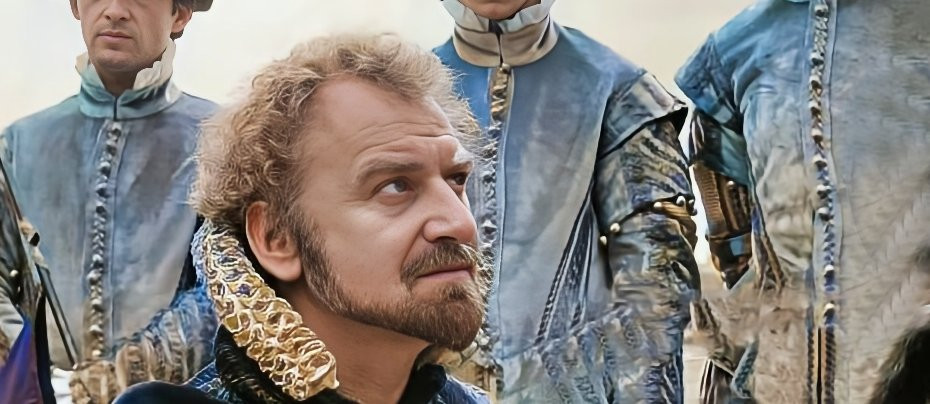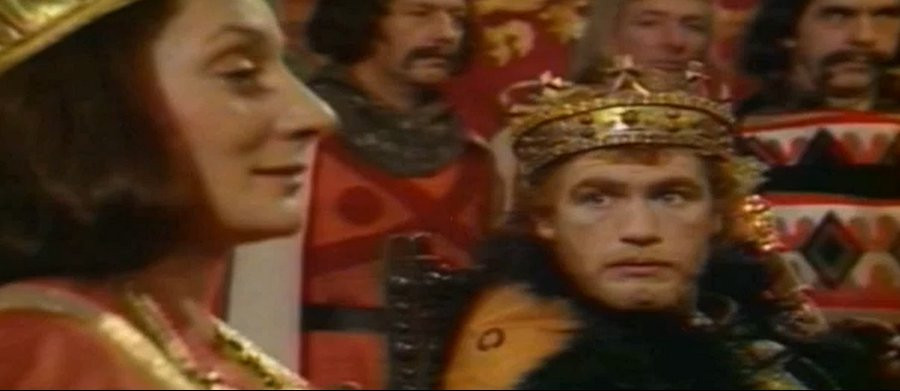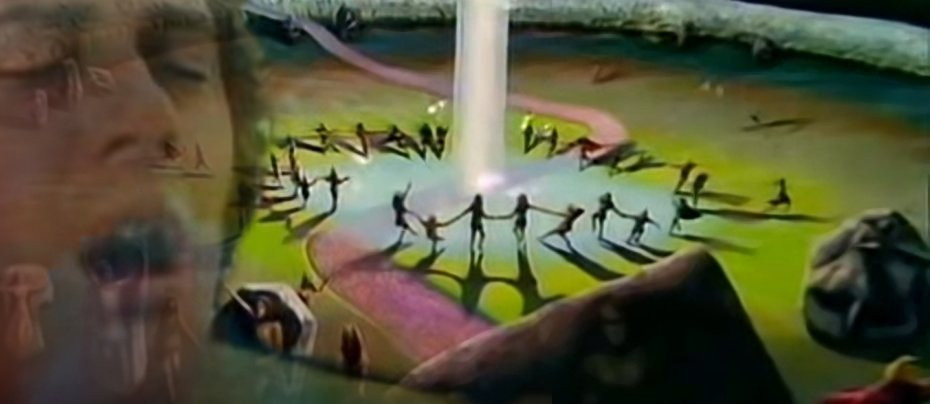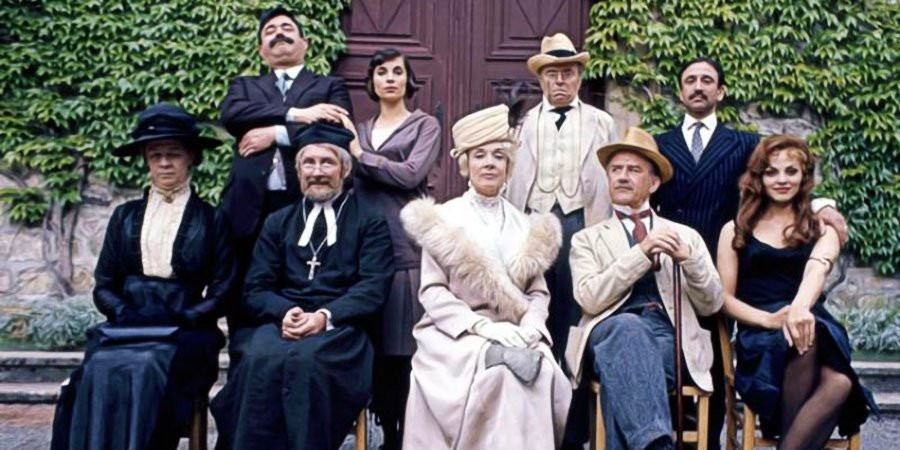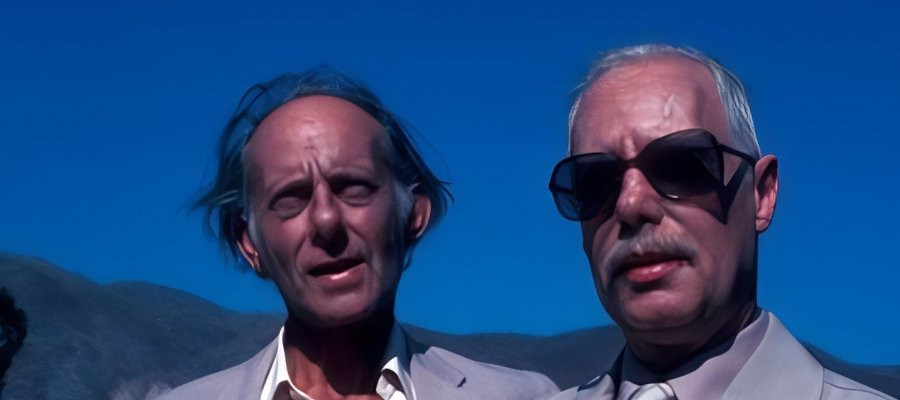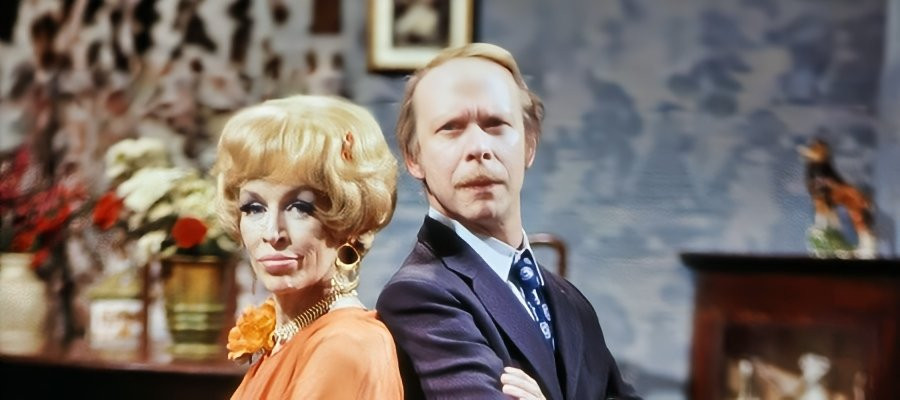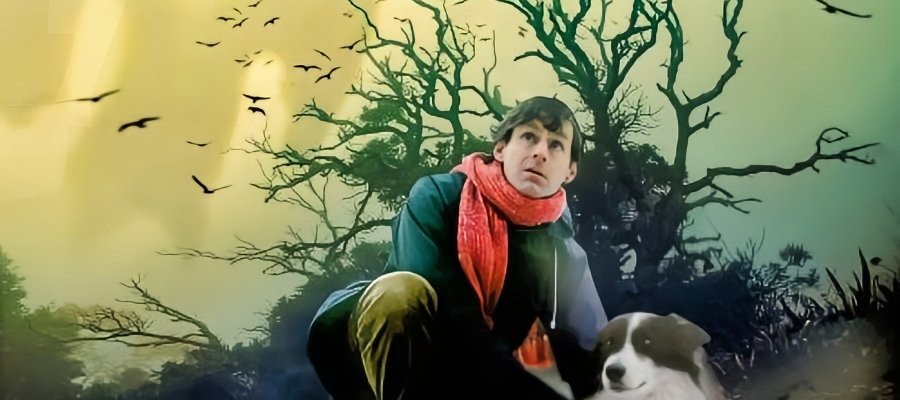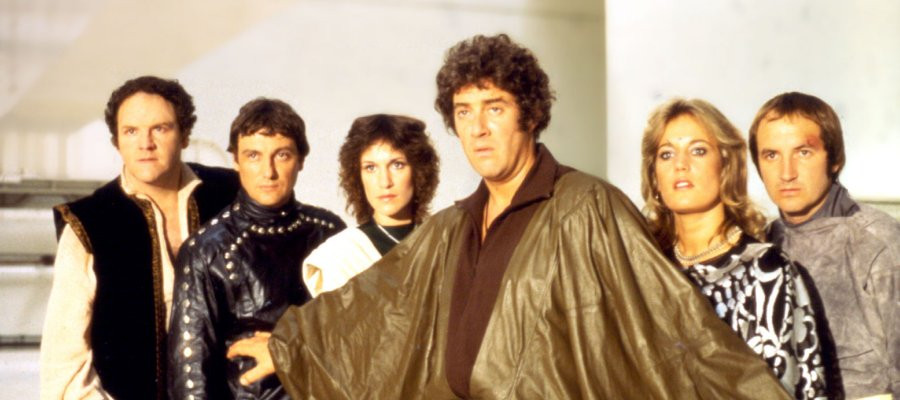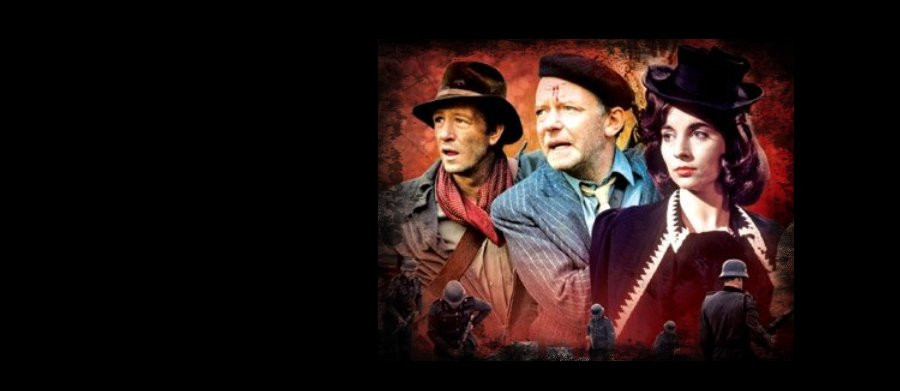
Manhunt
1969 - United KingdomTense and uncompromising drama set in wartime France, Manhunt was a powerful character-driven series that followed the personal dilemmas of three fugitives as they set off on a hazardous and dangerous escape to England whilst being pursued by the Abwehr, the SS and French collaborators.
When an important meeting of French Resistance leaders is broken by the Germans, an interpreter Anne-Marie Poitiers, codename 'Nina,' manages to escape. Knowing that the knowledge she has could be vital to the Allies she seeks help from a British agent operating in the town of Bracieux. But the agent, 'Vincent,' is immediately suspicious when she arrives with RAF pilot Jimmy Briggs who claims to have been shot down over France. Suspecting an attempt by the Germans to infiltrate Vincent's arm of the Resistance his first instinct is to kill them both. However, his radio operator, 'Robespierre' is unhappy with this course of action and sends a message to London for advice. Orders are received to return the pair to Britain. With the Germans already searching the village, Jimmy, Nina and Vincent set off on their perilous escape over 50 miles of occupied France.
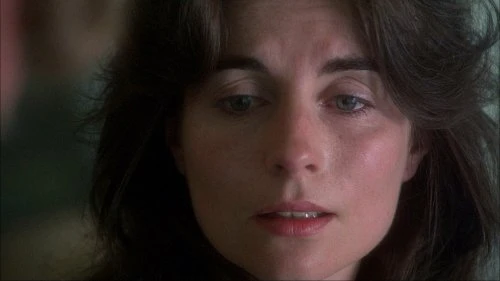
Travelling by foot across the country the fugitives encounter all kinds of danger, not least by the Milice française (French Militia), the paramilitary organisation created by the Vichy regime (with German aid) who participated in summary executions and assassinations, helping to round up Jews and résistants in France for deportation. The Milice frequently used torture to extract information or confessions from those whom they interrogated, and were considered by the Resistance as more dangerous than the Gestapo and SS because they were native Frenchmen who understood local dialects, had extensive knowledge of the towns and countryside, and knew local people and informants. Not all French people opposed the German occupation of their country.
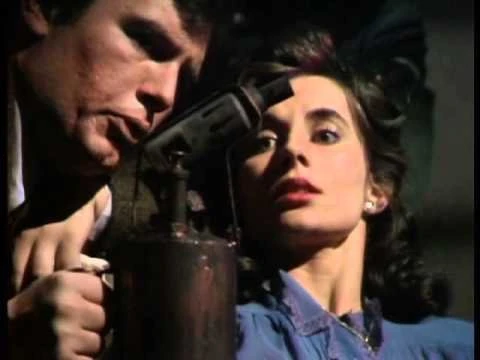
And so begins the slow unfolding of a dangerous and deeply psychological series of mind games as the three fugitives make their way across France not knowing who to trust and being pursued by different factions who each have their own motive for capturing the trio.
Vincent, rather incredulously, leads the trio to his family château, only to discover that it is now being used by General von Trenow as the headquarters of a German division. Unimpressed by the attitude of the army, especially that of the Abwehr intelligence officer Sergeant Gratz, who is suspected of being on the fringe of the anti-Nazi resistance movement, the German High Command has ordered hard-nosed SS Obersturmbanfuhrer Lutzig to co-ordinate a search for the three. When Nina is captured, having been separated from Vincent and Jimmy, the power struggle between the two German officers becomes apparent. Gratz tries to win Nina’s trust because the information she has is vital to the Abwehr to safeguard its position relative to the SS.
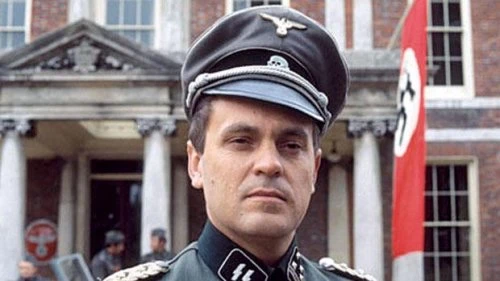
In the roles of the German officers are two of Britain’s most accomplished actors. Philip Madoc, the stage, television, radio and film performer recognised for having a "rich, sonorous voice" often played villains and officers, but is probably more widely remembered for his part as a German U-Boat commander in the classic "Don't tell him, Pike" scene from Dad's Army. Here he gives a chillingly cold performance as the brutish SS officer. Gratz is a far more complex character than any other in the series. Whereas Madoc’s character may be regarded as somewhat stereotyped, Robert Hardy’s role as Gratz is anything but. His continual planting of seeds of suspicion regarding double-agents among the escapees and his continual conflict with Madoc’s sadistic SS officer, kept viewers on the edge of their seats. Showing all the signs of passive-aggressive, self-effacing yet at times Machiavellian traits, Hardy puts in a performance of supreme craftsmanship that is a scene stealer in every scene. No matter how small that scene is.
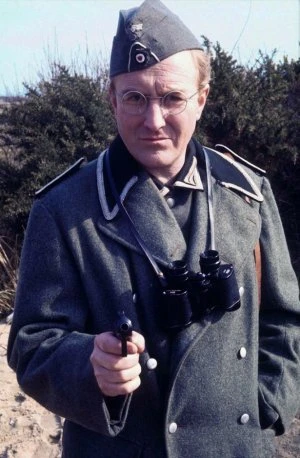
Vincent is played by Peter Barkworth in yet another celebrated television role in a distinguished career. Barkworth specialised in world-weary establishment figures such as bankers and civil servants and his best remembered role is probably that of Mark Telford in Telford's Change. Having first appeared on television in a 20-minute BBC production live from Alexandra Palace in 1948, he went on to appear in numerous series over four decades and won two BAFTA awards for best actor. In ‘Manhunt’ he plays a complex character who tries to overcome his sensitivity and compassion with cold professionalism.
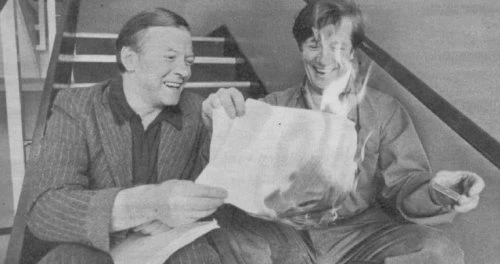
37-year-old Alfred Lynch, who plays RAF pilot Jimmy, made his screen debut with a small role as a commercial traveller in Tony Richardson's film version of John Osborne's ground-breaking play Look Back in Anger (1959). At the start of the sixties, he seemed to be on the brink of major stardom but spent most of his career in supporting roles.
24-year-old Cyd Hayman was a relative newcomer when she was cast in the all-important role of Nina. She was the last of 200 actresses who auditioned for the part. Producer Rex Firkin said that he chose her for her “great potential, beautiful cheekbones and fragility.” Nina begins her journey as very much the fragile victim, but through adversity and the need for survival finds previously unimaginable powers of self-protection, resistance, and revenge. There is an implied attraction between Nina and her captor Gratz which suggests that the writers, to some extent, based this storyline on the real-life rumour of Abwehr operative Hugo Bleicher, an NCO who had a French Resistant as a mistress.
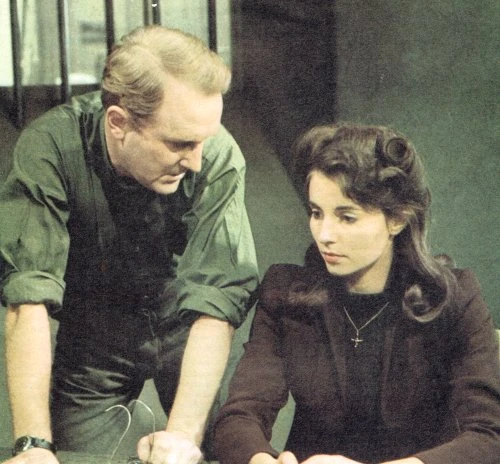
Manhunt was made by LWT and was broadcast on a Friday night throughout the ITV regions. Mostly studio shot with exterior scenes being filmed in Henley-On-Thames, one particular scene, which required the main cast to roll in the mud, jump into a river and cross a weir was filmed over the Thames at Medmenham. The cast performed their own stunt for this and had to be insured for £500,000 each. This also required them to edge across a narrow girder. Not a problem for Lynch and Hayman, but for Barkworth, being a non-swimmer, it was a bit scarier. Stunt swimming expert Eddie Beardsley stood by – just in case. Beardsley had previously worked on the James Bond movie Thunderball.
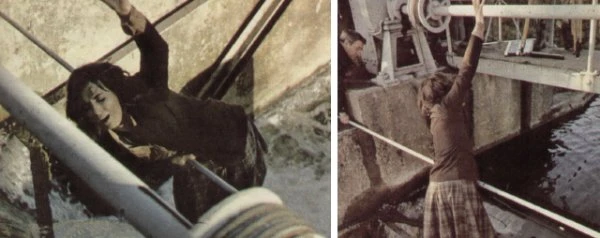
One episode in particular, ‘Intent to Steal’ (29 May 1970) broke new ground for a British drama series when the entire programme, in which Vincent, Jimmy and a force of the Bordeaux Resistance organisation try to infiltrate a German controlled metal works in an attempt to seize an aircraft component. The entire 60-minute episode was devoid of any dialogue.
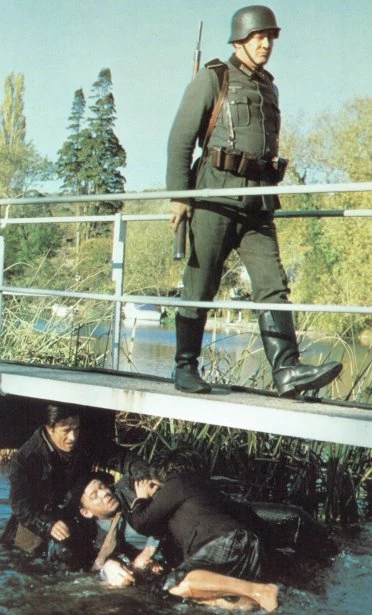
Beethoven’s Fifth, the wartime Allied code initial, was used as the theme over the opening titles. The series was one of the longest undertaken by LWT at 26 episodes from December 1969 to June 1970. Intelligent dialogue and plotting sustained the series which was heavy on intrigue but light on action. Drawing on the psychological and emotional dimensions of the central characters was key to its success and cohesiveness. A number of respected scriptwriters worked on the series and they included Vincent Tilsley who was responsible for more than a hundred TV scripts including The Prisoner, Z Cars, Doctor Finlay's Casebook and The Forsyte Saga (receiving the Writers Guild of Great Britain team awards for both Finlay and Forsyte); Roy Clarke, best known for his comedy series Open All Hours and Last of the Summer Wine; Jonathan Hales who also wrote for a number of US shows (Dallas, The Adventures of Young Indiana Jones and the screenplay for the movie Star Wars: Episode II - Attack of the Clones) and Andrew Jones who also produced twelve of the episodes.
The series also including a veritable who’s who of British acting talent – some staying for several episodes others just passing through – and they included Maggie Fitzgibbon, Leslie Schofield, George Sewell, Brian Cox, John Savident, Nerys Hughes, Iain Cuthbertson, Bernard Hepton, Andrew Keir, T.P. McKenna, Julian Glover, Yootha Joyce and Paul Darrow.
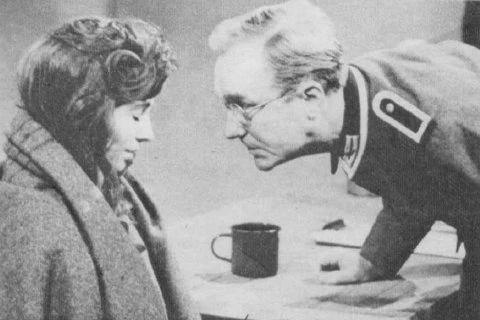
Where possible historical fact was seldom substituted for poetic licence and was always worked into the plot meaning that the series stands up well in relating the reality, brutality and horror of being in France under German occupation, unlike other filmed tales of the French Resistance which tended (prior to that) to be of the simplistic ‘boy’s own’ adventure type with plucky young men and women standing up to or plotting against the enemy. And while ‘Manhunt’ may seem somewhat dated to modern audiences it is very typical of late 60’s early 70s drama which built up the tension and intrigue over a number of episodes. As a result, some modern viewers may find the series somewhat ‘slow.’
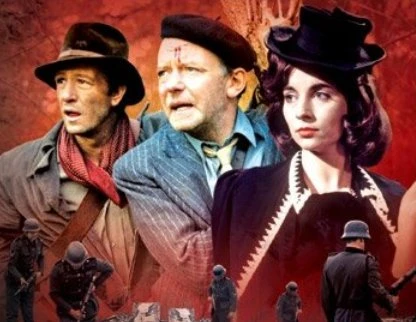
By turns atmospheric, intriguing, gripping and shocking, Manhunt is still one of the best wartime dramas to have appeared on our screens. It delivered excellent television throughout its entire run and as a piece of history, it remains resolutely undiminished.
Seen this show? How do you rate it?
Seen this show? How do you rate it?
Published on July 27th, 2020. Written by Laurence Marcus for Television Heaven.


